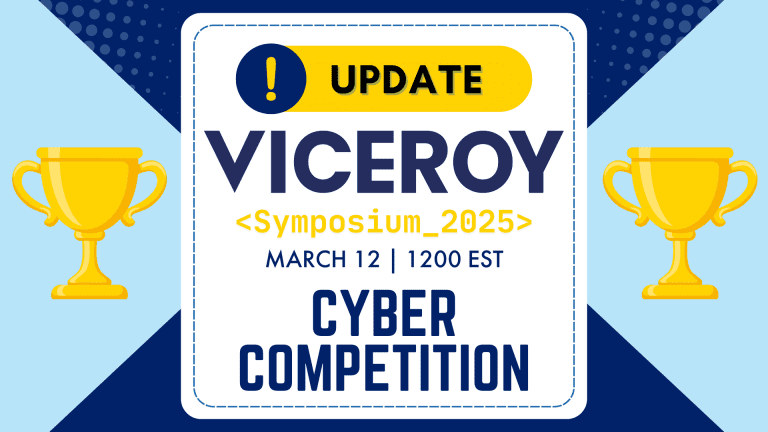As the nature of digital warfare evolves, the need for a workforce trained in cybersecurity is critical for defending the United States from attacks. In response to the growing threat and the need for such talent, the U.S. Department of Defense (DoD) has joined forces with Northeastern and four other universities to launch a virtual institute that will recruit and train the next generation of experts to combat cyber warfare, including cyber espionage and attacks on the electromagnetic spectrum.
The virtual institute, called VICEROY DECREE, will offer a two-year scholarship program focused on advanced cybersecurity, the electromagnetic spectrum, cryptography, data science, DoD research, and strategic foreign languages, including Chinese, Russian, Arabic, Persian, and Korean. Led by Northeastern, the program will be offered across five universities, including Northern Arizona University, the University of Houston, the University of Texas at Austin, and the University of South Carolina. It will include experiential learning opportunities, such as co-op positions at the DoD and other employers within the consortium partners’ networks.
The scholarship program will fund 60 students and is open to veterans, ROTC students, and civilians, with a particular emphasis on historically underrepresented students, and students from economically disadvantaged backgrounds. Students eligible to enroll must be security clearance-eligible.
A critical focus of the program will be the electromagnetic spectrum, which includes radio waves, and is a critical enabler for communications, navigation, radar, training, and other military operations. International adversaries have engaged in cyber espionage and hacking, infiltrated U.S. trade secrets, and launched cyber attacks on critical infrastructure. They are now developing electronic warfare weapons focused on the DoD’s ability to operate in the spectrum.
“The battlefield has evolved, and our adversaries can now exploit vulnerabilities in cyberspace, where information resides and is accessed, and in the electromagnetic spectrum, where signals are transmitted,” says Jose Sierra, a Northeastern associate teaching professor and associate director for cybersecurity who is leading VICEROY DECREE at Northeastern. “Spectrum superiority is critical in military operations because electromagnetic radiation is used in command, control, and communications for radios, drones, and wireless devices; in navigation systems, like GPS; and in surveillance systems, like radars.”
As a signal of the urgency, the DoD has been seeking to hire more than 8,000 cyber workers to help defend the virtual space.
The two-year program starts in fall 2022 and may be extended beyond its initial two-year commitment. It is funded by a $1.5 million award from the Griffiss Institute, a nonprofit talent and technology accelerator for the DoD and its academic, government, and industry partners around the world. The university consortium supporting this program is associated with the Virtual Institutes for Cyber and Electromagnetic Spectrum Research and Employ (VICEROY), a DoD initiative launched with the Griffiss Institute that was authorized by the 2019 John S. McCain National Defense Authorization Act.
“VICEROY DECREE and the creation of this consortium represent a significant opportunity for Northeastern and its partners to directly address the vital need for diverse and well-trained cyber and electromagnetic spectrum professionals to enter the DoD workforce,” says David Luzzi, senior vice provost of research at Northeastern. “We look forward to working with our DoD, defense industry, and academic partners on this important initiative.”
Students in the program will be trained in cybersecurity, electromagnetic interference and antenna design, the detection and defeating of digital attacks, cryptography, and other areas of need. They will have the opportunity to participate in experiential learning opportunities, including co-ops, internships, and fellowships, as well as cyber competitions (hackathons, Capture the Flag information-security competitions, and other contests).
“The institute will provide students with access to courses not otherwise available that are complemented by DoD-relevant experiential learning opportunities, such as labs, co-ops, internships, and symposia,” Sierra says. “Students will also have access to mentors—veterans, ROTC, or underrepresented minorities in the DoD world—to provide support and guidance on military and defense industry careers.”
The institute will extend its reach to high-school students, with a special focus on women and underrepresented minorities to help meet the demand for cybersecurity workers at DoD and the Defense Industrial Base, which provides the products and services for military operations.
Additionally, VICEROY DECREE will offer free training to faculty at community colleges and minority-serving institutions, with stipends for faculty who go on to teach cybersecurity and the electromagnetic spectrum in their classrooms. Among the partners in this train-the-trainer program will be the Roux Institute at Northeastern University in Portland, Maine, which will offer training for community-college faculty in Maine.
The National Security Agency has designated Northeastern as a National Center of Academic Excellence in Cybersecurity (NCAE-C) in cyber research, cyber operations, and cyber defense.

